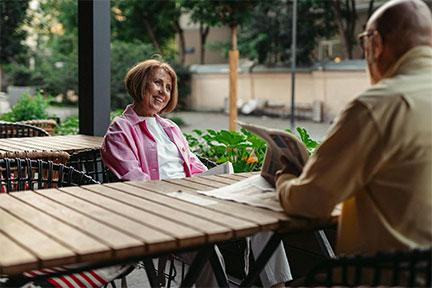
As we grow older, maintaining good health and cleanliness becomes more important than ever. Aging brings changes that can affect mobility, memory, and immune function, making everyday self-care more challenging. Adopting consistent, practical habits can greatly improve quality of life and overall well-being. From personal hygiene and balanced nutrition to regular exercise and mental wellness, several key practices support healthy aging. Cleanliness and health go hand in hand, especially in the senior years when vulnerability to illness increases. This guide explores crucial practices that help seniors live healthier, safer, and more fulfilling lives as they navigate their later years.
Prioritizing Daily Personal Hygiene
Maintaining personal hygiene becomes increasingly important as we age, yet it can also become more challenging. Tasks like bathing, brushing teeth, and grooming may be difficult due to limited mobility, arthritis, or memory issues. When these tasks become too hard to manage alone, hygiene concerns naturally begin to arise, impacting both physical health and emotional well-being. Neglected hygiene can lead to skin infections, dental issues, and social withdrawal. In such cases, assisted living communities can provide a supportive environment where trained staff help with daily routines while preserving personal dignity. This type of structured support ensures that seniors continue to feel clean, confident, and cared for when independence is no longer enough.
Maintaining a Nutritious Diet
Nutrition is central to maintaining strength, energy, and immune health in the senior years. A well-balanced diet rich in fruits, vegetables, lean proteins, whole grains, and healthy fats can help prevent chronic conditions like diabetes, heart disease, and osteoporosis. Seniors often experience changes in appetite, taste, and digestion, which may lead to poor food choices or undernutrition. It's important to focus on nutrient-dense foods and proper hydration. Supplements might be necessary if certain nutrients are lacking, but they should always be taken under medical supervision. Preparing simple, wholesome meals and keeping healthy snacks accessible can support sustained energy levels and overall wellness.
Staying Physically Active
Physical activity plays a pivotal role in maintaining strength, flexibility, and balance, all of which are critical in preventing falls, a common hazard among seniors. Engaging in regular, low-impact exercises such as walking, swimming, yoga, or tai chi can significantly improve cardiovascular health, joint function, and mental clarity. Exercise also stimulates the release of endorphins, which can reduce symptoms of depression and anxiety. For seniors with limited mobility, even seated exercises and stretches can offer notable benefits. Incorporating movement into the daily routine, whether it’s gardening, light housework, or a guided fitness class, ensures a healthier and more independent lifestyle.
Keeping a Clean Living Environment
A clean and clutter-free home is visually appealing and important for safety and health. Dust, mold, and accumulated germs can lead to respiratory issues and infections, while clutter increases the risk of trips and falls. Seniors or their caregivers should establish regular cleaning schedules, focusing on high-touch surfaces like doorknobs, light switches, and countertops. Decluttering unnecessary items and organizing essentials can simplify daily tasks and create a more comfortable space. If cleaning becomes physically taxing, professional cleaning services or family support can help maintain a tidy environment that promotes wellness and peace of mind. For more serious concerns, such as mold growth, professional mold remediation in Nashville can help protect indoor air quality. In some cases, partnering with an expert Nashville exterminator can also help prevent pest-related health risks that compromise a clean living space.
Managing Medications Effectively
As people age, they are often prescribed multiple medications for various health conditions. Managing these prescriptions correctly is crucial to avoid missed doses, dangerous interactions, or overdoses. Seniors should use tools such as pill organizers, medication tracking apps, or alarm reminders to stay on schedule. It’s also important to have regular consultations with healthcare providers to review all medications and adjust dosages as needed. Ensuring that medications are stored properly is another key factor. A proactive approach to medication management can drastically reduce hospital visits and enhance day-to-day functionality.
Focusing on Mental and Emotional Health 
Mental well-being is just as important as physical health in the senior years. Feelings of isolation, loneliness, or cognitive decline can take a serious toll on an older adult’s quality of life. Engaging in social activities, maintaining family connections, and participating in hobbies or volunteer work can help keep the mind sharp and spirits high. Cognitive exercises such as puzzles, reading, and learning new skills can slow cognitive decline. If signs of depression or anxiety appear, professional help should be sought promptly. By nurturing emotional resilience and mental engagement, seniors can maintain a strong sense of purpose and contentment.
Aging gracefully requires intentional care, healthy habits, and a supportive environment. By implementing these critical practices, seniors can preserve their independence, reduce health risks, and enhance their quality of life. From personal hygiene and nutrition to mental health and medical checkups, every small step contributes to a healthier, more fulfilling senior experience. Supporting older adults in these efforts benefits them directly and fosters a more compassionate and proactive approach to aging across our communities.
